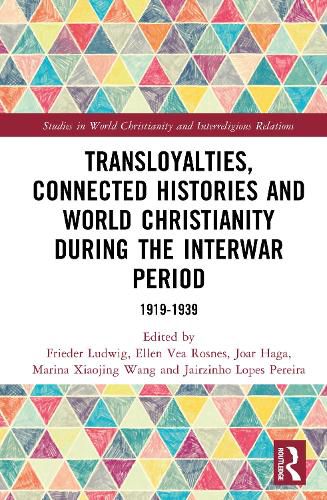Readings Newsletter
Become a Readings Member to make your shopping experience even easier.
Sign in or sign up for free!
You’re not far away from qualifying for FREE standard shipping within Australia
You’ve qualified for FREE standard shipping within Australia
The cart is loading…






This book introduces the approach of 'transloyalties' to study 'connected histories' in World Christianity. The term 'transloyalties' is used to analyze the multifaceted processes in various contact zones through which cultural and religious identities were transformed in the tension between different loyalties. The volume tests this approach in various case studies, most of them focusing on Lutheran churches and 'World Lutheranism' between 1919 and 1939, a time of rapidly changing political circumstances.
Traditionally, the USA, Germany and Scandinavia had been identified as the three centres of Lutheranism. However, while the structures in these centres were well established and 'World Lutheranism' was something 'out there', with limited impact back home, negotiation processes on 'Lutheran identity' were crucial in contexts where new Lutheran churches emerged. Asian and African church leaders operated in a new context of loyalties: They pushed for cooperation, and they often interacted with mission organisations from all three centres, and also with other religions, traditional cultures and political movements. Therefore, it is significant what happened, for instance, in the Lutheran Church of China or at Umpumulo in South Africa.
Including theoretical reflections and case studies, this volume is valuable reading for scholars of the history of World Christianity
$9.00 standard shipping within Australia
FREE standard shipping within Australia for orders over $100.00
Express & International shipping calculated at checkout
This book introduces the approach of 'transloyalties' to study 'connected histories' in World Christianity. The term 'transloyalties' is used to analyze the multifaceted processes in various contact zones through which cultural and religious identities were transformed in the tension between different loyalties. The volume tests this approach in various case studies, most of them focusing on Lutheran churches and 'World Lutheranism' between 1919 and 1939, a time of rapidly changing political circumstances.
Traditionally, the USA, Germany and Scandinavia had been identified as the three centres of Lutheranism. However, while the structures in these centres were well established and 'World Lutheranism' was something 'out there', with limited impact back home, negotiation processes on 'Lutheran identity' were crucial in contexts where new Lutheran churches emerged. Asian and African church leaders operated in a new context of loyalties: They pushed for cooperation, and they often interacted with mission organisations from all three centres, and also with other religions, traditional cultures and political movements. Therefore, it is significant what happened, for instance, in the Lutheran Church of China or at Umpumulo in South Africa.
Including theoretical reflections and case studies, this volume is valuable reading for scholars of the history of World Christianity